Plot
Tom Ward, a cocky young football hero, returns home after graduation determined to conquer the world. He begins a flirtation with Mary Howe, secretary to his rival, McAndrews, and in a restaurant he bribes a waiter to spill soup on her employer. Although offered a local banking job, Tom stakes his fortunes on a scheme to sell bonds to wealthy old Hattie Brown, a befuddled spinster, and achieves the difficult task while posing as a doctor by getting her drunk. Finally, desperate over Mary's engagement to McAndrews, Tom kidnaps her from the altar. In a chase finale she is convinced that he loves her.
Production
After the box office success of Anna Christie (1930) and the rave reviews that not only Greta Garbo received for her performance but also her co-star Marie Dressler, M-G-M management decided to cast the latter actress in The Girl Said No. Although Dressler was happy to have a new assignment from the studio, she had to hide her disappointment over the script and her role.
According to biographer Betty Lee in Marie Dressler: The Unlikeliest Star, "It seemed fairly obvious..that although M-G-M was impressed with Dressler's potential...the top office did not know how to handle their unique new contract player. [Studio head] Louis B. Mayer, who had already informed his minions that he wanted Dressler to be marketed as a mother figure who was also a battered version of life's wars, asked her to lunch in his private bungalow on the Culver City lot. Not only did Dressler appear to be a substantial mother figure in real life, M-G-M's boss was also aware that the actress exuded an easy air of upper-class panache. She was, he decided, a far classier individual than the Hollywood glamour girls he often professed to disdain."
Dressler would go on to star in a total of seven films in 1930 and win an Academy Award for her performance in Min and Bill (1930), opposite Wallace Beery.

The Hollywood Revue of 1929, or simply The Hollywood Revue, is a 1929 American pre-Code musical comedy film released by Metro-Goldwyn-Mayer. It was the studio's second feature-length musical, and one of their earliest sound films. Produced by Harry Rapf and Irving Thalberg and directed by Charles Reisner, it features nearly all of MGM's stars in a two-hour revue that includes three segments in Technicolor. The masters of ceremonies are Conrad Nagel and Jack Benny.

Wallace Fitzgerald Beery was an American film and stage actor. He is best known for his portrayal of Bill in Min and Bill (1930) opposite Marie Dressler, as General Director Preysing in Grand Hotel (1932), as the pirate Long John Silver in Treasure Island (1934), as Pancho Villa in Viva Villa! (1934), and his title role in The Champ (1931), for which he won the Academy Award for Best Actor. Beery appeared in some 250 films during a 36-year career. His contract with Metro-Goldwyn-Mayer stipulated in 1932 that he would be paid $1 more than any other contract player at the studio. This made Beery the highest-paid film actor in the world during the early 1930s. He was the brother of actor Noah Beery and uncle of actor Noah Beery Jr.
The following is an overview of 1932 in film, including significant events, a list of films released and notable births and deaths.
The following is an overview of 1930 in film, including significant events, a list of films released and notable births and deaths.
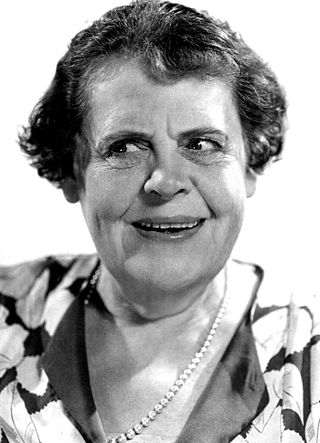
Leila Marie Koerber, known by her stage name Marie Dressler, was a Canadian-born stage and screen actress and comedian, who was popular in Hollywood in early silent and Depression-era film.

Leila Hyams was an American actress who came from a show business family. Her relatively short film career began in 1924 during the era of silent films and ended in 1936. The blonde blue-eyed ingenue and leading lady appeared in more than 50 film roles and remained a press favourite, with numerous magazine covers.

Hermione Youlanda Ruby Clinton-Baddeley was an English actress of theatre, film and television. She typically played brash, vulgar characters, often referred to as "brassy" or "blowsy". She found her milieu in revue, in which she played from the 1930s to the 1950s, co-starring several times with the English actress Hermione Gingold.

Mary Brian was an American actress who made the transition from silent films to sound films.
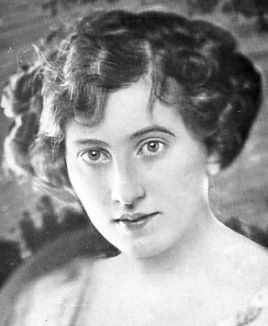
Pauline Theresa Moran billed as Polly Moran, was an American actress of vaudeville, stage and screen and a comedian.
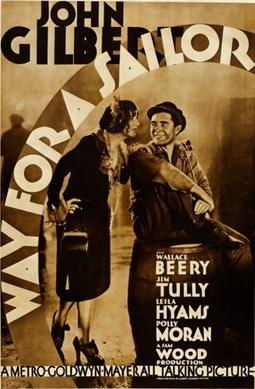
Way for a Sailor is a 1930 American pre-Code film starring John Gilbert. The supporting cast includes Wallace Beery, Jim Tully, Leila Hyams, and Polly Moran. The film was directed by Sam Wood, who insisted on no screen credit. Louis B. Mayer's insistence that Gilbert had no future in talkies is attributed to two causes: Mayer's personal animosity toward the man and/or the poor quality of his voice. Modern sources note that Gilbert's voice is no worse than other actors' who made the transition with a little coaching.
Chasing Rainbows is a 1930 American Pre-Code romantic musical film directed by Charles Reisner, and released by Metro-Goldwyn-Mayer.
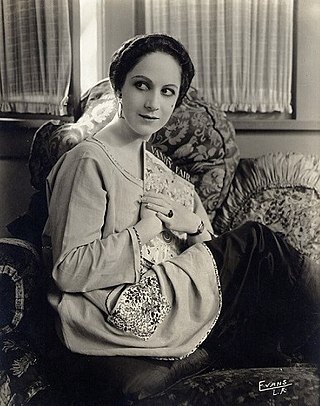
Claire Du Brey was an American actress. She appeared in more than 200 films from 1916 to 1959. Her name is sometimes rendered as Claire Du Bray or as Claire Dubrey.

Alias Jimmy Valentine is a 1928 American sound part-talkie crime drama film directed by Jack Conway and starring William Haines, Leila Hyams, Lionel Barrymore, and Karl Dane. The film features talking sequences along with a synchronized musical score with sound effects using both the sound-on-disc and sound-on-film process. The film is based on the 1909 play Alias Jimmy Valentine by Paul Armstrong, which itself was based on an O. Henry short story. The play toured in travelling production companies making it extremely popular. It was revived on Broadway in 1921. Two previous film adaptations had been produced at the old Metro Studios. A 1915 film version was directed by Maurice Tourneur and a 1920 version starring Bert Lytell was directed by Edmund Mortimer and Arthur Ripley.

Georgiana Caine was an American actress who performed both on Broadway and in more than 80 films in her 51-year career.
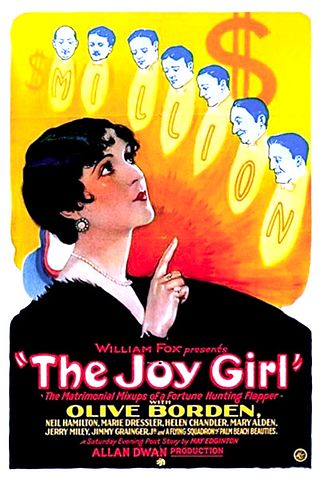
The Joy Girl is a 1927 American two-strip Technicolor silent comedy film directed by Allan Dwan, released by Fox Film Corporation, starring Olive Borden, Neil Hamilton, and Marie Dressler, and based on the short story of the same name by May Edginton.
The Girl Said No may refer to:

Way Out West is a 1930 American pre-Code parody film, directed by Fred Niblo, starring William Haines, Leila Hyams, Polly Moran, and Ralph Bushman. It tells the story of Windy, a con man who cheats a group of cowboys out of their money. When they discover his cheating and learn that he has been robbed, they force him to work on a ranch until he has paid his debt.

Reducing is a 1931 American pre-Code comedy film directed by Charles Reisner and written by Beatrice Banyard, Robert E. Hopkins, Willard Mack and Zelda Sears. The film stars Marie Dressler, Polly Moran, Anita Page, Lucien Littlefield, William Collier, Jr. and Sally Eilers. The film was released on January 3, 1931, by Metro-Goldwyn-Mayer.

Politics is a 1931 American pre-Code comedy film directed by Charles Reisner and written by Wells Root and Robert E. Hopkins. The film stars Marie Dressler, Polly Moran, Roscoe Ates, Karen Morley, and William Bakewell. It was released on July 25, 1931 by Metro-Goldwyn-Mayer.

Leila McIntyre was an American actress and vaudeville performer.
















